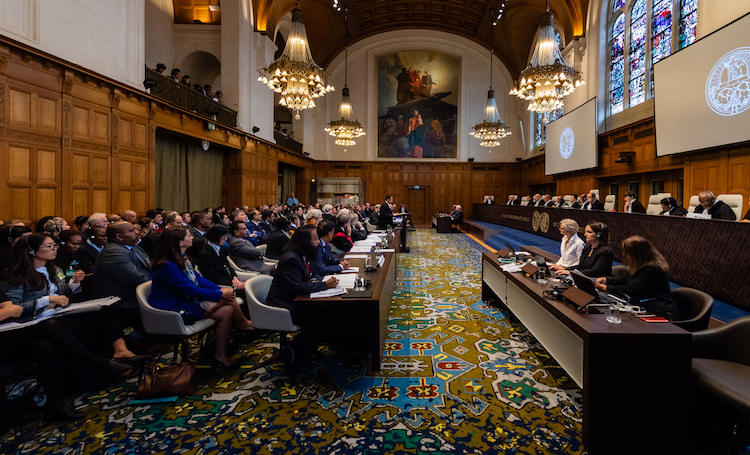By Lisa Vives, Global Information Network
NEW YORK (IDN) – When colonial powers redrew borders in Africa and picked choice lands for themselves and less desirable land for everyone else, some of those deals remained through this century. Few were undone.
A case before the International Court of Justice (ICJ) will decide if colonial deals that redrew African borders can be declared illegal and, if so, if islands taken by the United Kingdom from the nation of Mauritius can be rejoined to Mauritius as before.
Mauritius says it was illegally stripped by Britain of the Chagos Islands, now home to a major U.S. air base.
The British decision to separate Mauritius from the archipelago in 1965 was a bargaining chip that forced Mauritius to choose – accept the deal or never obtain independence.
The deal was in breach of UN resolution 1514, passed in 1960, which specifically banned the breakup of colonies before independence, according to the Mauritian government arguing before the UN-backed court which specializes in territorial and border disputes between states.
The four-day session (September 3-6) will hear from representatives of 22 countries in a dispute over the rights of exiled islanders to return.
The United States has leased the Chagos Islands’ biggest island, Diego Garcia, since 1966 and has built an air base there, while the entire population of around 1,500 people was forced to leave.
Although ICJ opinions are not binding, they carry weight under international law.
Arguing for Mauritius is elder statesman Anerood Jugnauth, 88, who served for nearly 30 years during four stints as prime minister or president of Mauritius from 1982-2017.
“The choice we were faced with was no choice at all: it was independence with detachment (of the Chagos archipelago) or no independence with detachment anyway,” Jugnauth told the 14-judge panel.
Olivier Bancoult, leader of the Chagos Refugees Group said: “What we are asking for our right to live on our island as sons of the soil.”
UK solicitor general Robert Buckland accepted that the removal of the Chagossians and their treatment thereafter “was shameful and wrong and Britain deeply regrets that fact.” Still, he claims, in 1982, a treaty was signed between the countries that reached “full and final settlement” of Mauritian claims to the archipelago. That deal has since been recognized by the European court of human rights. [IDN-InDepthNews – 04 September 2018]
Photo: View of the ICJ courtroom on the opening day of the hearings. Credit: ICJ
IDN is flagship agency of the International Press Syndicate.
facebook.com/IDN.GoingDeeper – twitter.com/InDepthNews

